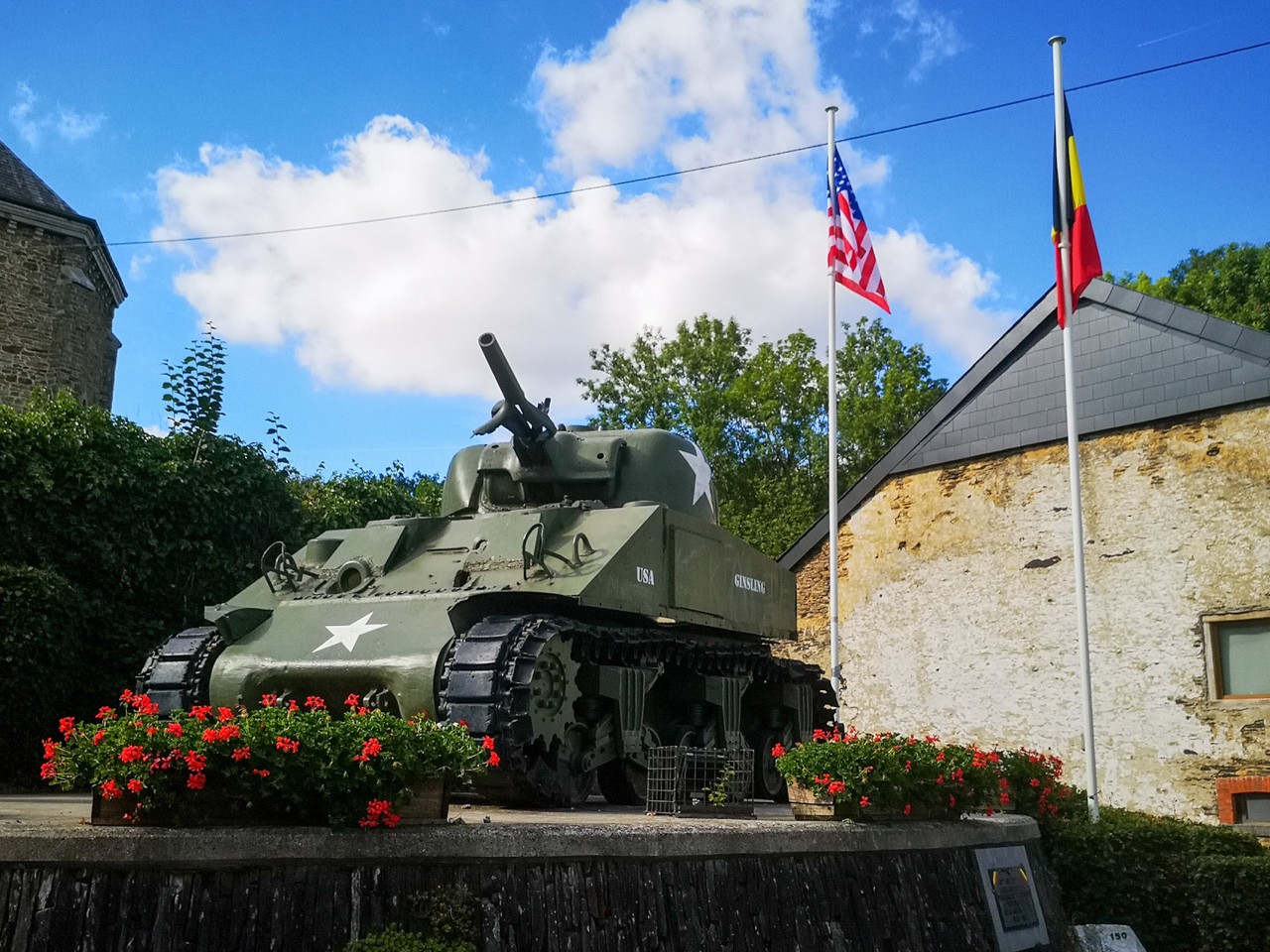On December 19, the German army took control of Wibrin at the beginning of the night and simultaneously occupied Houffalize. The American army returned to the village on January 14. In the morning, the German forces, composed of the rear guard of the 116th Armored Division and remnants of various units, held their positions well. In the afternoon, Company H of the 66th Armored Regiment (2nd Armored Division), commanded by Captain James Burt, gained the upper hand by attacking from the west, thus overlooking their positions.
The liberation of the village left behind four American M4A3 Sherman tanks, disabled during the fighting. The vehicle present under the church was found higher up, near the football field. After the war, scrap dealers came to recover the metal from the wrecks and began cutting up the vehicle. The mayor at the time, Adolphe Delacollette, arrived just in time and ordered the manipulations to stop immediately.
The Sherman was to be preserved to honor the American fighters. First moved in its state to the current location in 1948, it was then restored at the Rocourt Arsenal in 2009. A year later, the new memorial space was inaugurated. The residents came in large numbers to celebrate the return of the village tank and to honor the liberators of January 14, 1945.
Today, one can still observe shell impacts on the frontal armor. The holes, about 10 centimeters in diameter, suggest impacts inflicted by 75-millimeter cannons. These likely came from Panther tanks that fought in the region. The cannon itself was exploded after the war by the Belgian engineers, who came to clear the area of any risk of collateral damage. In fact, a shell had remained stuck in the cannon during the fighting. The vehicle, burned out inside, was repainted in the original green color. Next to the tank are commemorative plaques installed on the occasion of the 40th and 50th anniversaries of the Battle of the Bulge.
